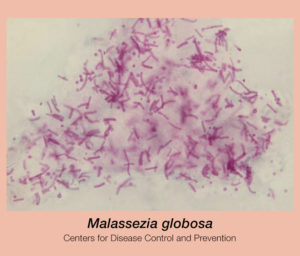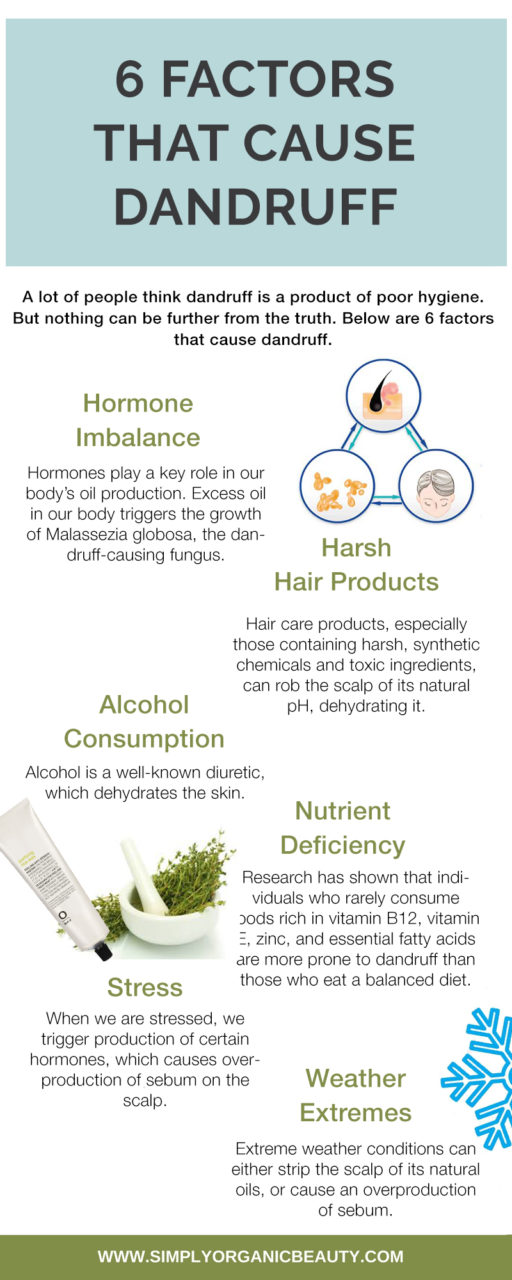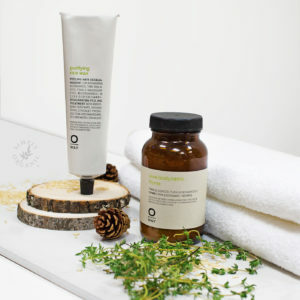Winter dandruff is here! And while it’s a normal occurrence during this time of year, it doesn’t mean you can’t prevent it.
The first step to eliminating dandruff is knowing how it all begins.
Understanding Dandruff
A lot of people think dandruff is a product of poor hygiene. Hence, many of us feel quite embarrassed getting the “flakes” as we discreetly dust them off our shoulders. But this is a false analogy.

Like any scalp condition, dandruff is brought about by various factors.
Typically, dandruff occurs when the scalp’s biological balance is disturbed, and as a result sends the production of naturally occurring scalp fungus, Malassezia globosa, into overdrive. It burrows deep into the hair follicle, irritating the scalp and causing it to shed dead skin cells faster than normal. In some cases, it triggers seborrheic dermatitis, particularly when the scalp is oily.
Factors That Cause Dandruff
Hormone Imbalance
Hormones play a key role in our body’s oil production. Women, for instance, experience an upsurge in oil production when their estrogen level drops and progesterone levels increase.
While oil is essential to keep the scalp’s moisture balance normal, excess oil triggers growth of the yeast-like fungus Malassezia globosa, resulting to dandruff. To address oily scalps, natural treatments like Oway Purifying Hair Bath for Oily Scalps help rebalance the skin’s moisture levels while eradicating Malassezia globosa.
Alcohol Consumption
Alcohol is a well-known diuretic, which means it promotes increased production of urine. Therefore, excess alcohol consumption will trigger frequent trips to the bathroom, dehydrating the body and ultimately – the skin.
Harsh Hair Products
Hair care products, especially those containing harsh, synthetic chemicals and toxic ingredients, can rob the scalp of its natural pH and destroy the barrier that locks in moisture. This leaves the scalp vulnerable to sensitivity, irritation, and bacteria, which leads to dandruff.
Weather Extremes
Extreme weather conditions can either strip the scalp of its natural oils, or cause an overproduction of sebum. For example, winter is known for sucking the moisture out of the scalp, leaving it cracked and irritated. To repair it, treatments containing Thyme, Rosemary, and Rice Wax (like Oway Purifying Scalp Treatment Kit) are highly effective in restoring the scalp’s moisture balance, which prevents dandruff from further developing.
Nutrient Deficiency

Dandruff can be our body’s way of telling us that something is not right. Research has shown that individuals who rarely consume foods rich in vitamin B12, vitamin E, zinc, and essential fatty acids are more prone to dandruff than those who eat a balanced diet.
Vitamin B12, vitamin E, zinc, and fatty acids are essential nutrients that stimulate blood flow to the scalp and fights off free radicals that cause various scalp issues.
Stress
Many experts believe that there is a link between stress and dandruff. Because when we are stressed, we trigger production of certain hormones, which, as previously mentioned, causes overproduction of sebum on the scalp. This creates an ideal condition for the Malassezia globosa to thrive.
How to Treat Dandruff
Aside from scalp conditions that can only be treated by a dermatologist, scalp issues can be easily prevented.

- Avoid stress as much as possible. Exercising regularly helps reduce stress hormones and stimulates our body to produce endorphins, a.k.a. the happy hormone.
- Eat foods rich in Vitamin B12, vitamin E, zinc, and essential fatty acids.
- Regulate your alcohol intake.
- Avoid hair products that contain harsh chemicals. They rob the hair and scalp of their natural oils, which often leads to dandruff.
- Go natural. Incorporate essential oils and herbal treatments with antioxidant and anti-fungal properties into your hair care routine to eradicate the fungus that’s causing dandruff.




